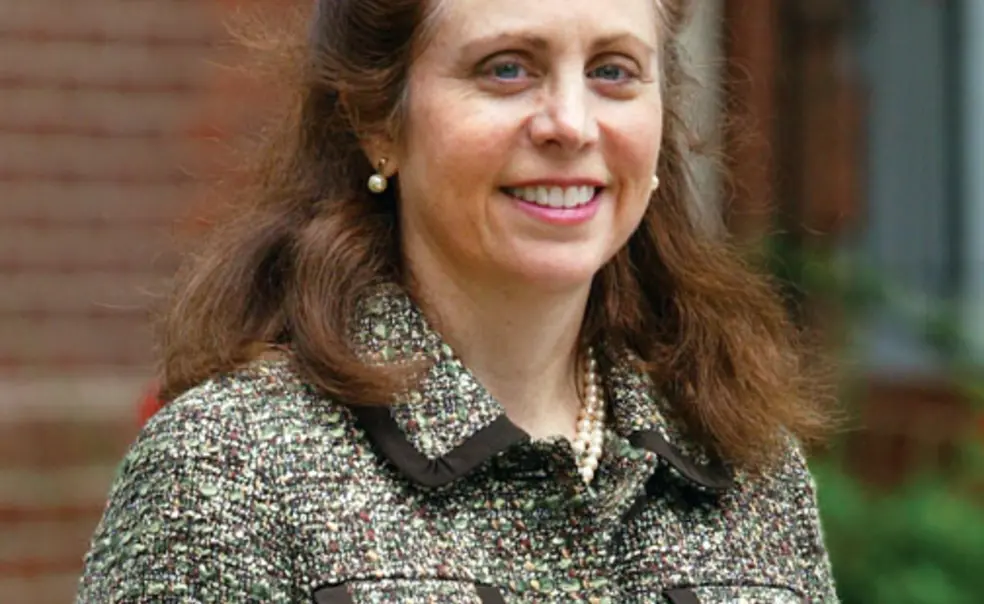Laura H. Kahn *02, on leaders and health crises
An effective public-health program demands informed political leaders as well as an informed citizenry, argues Laura H. Kahn *02 in her new book, Who’s In Charge? Leadership during Epidemics, Bioterror Attacks, and Other Public Health Crises (Praeger Security International). Kahn, a medical doctor and health-policy research scholar at the Woodrow Wilson School, discussed the ongoing H1N1 outbreak and the national-security implications of universal health care.
You have written about unwarranted “hysteria” surrounding the H1N1 virus last spring. What happened?
The virus emerged in Mexico, and a lot of the Mexican population does not have health insurance, so people are not quick to seek medical care. Only the sickest people went to the hospital, and that is when public-health officials started keeping track of the disease. Without looking at the broader community, they concluded that this was a very deadly disease, and it set off alarms around the world. But no one knew about all the people who had a milder form of the disease.
Is a similar misinterpretation possible in this country?
Yes. We have 45 million uninsured people in this country. If a virus breaks out, people who don’t have health insurance might wait until they are really sick before seeking medical care. This situation could cause a pandemic to spread and severely hamper our ability to respond in a timely way.
So health insurance is a national-security issue?
Absolutely. We are not as resilient or robust in responding to outbreaks as we could be because we have so many uninsured people. That makes us inherently less capable of taking care of the population during a pandemic. Take the 2001 anthrax attacks as an example. Virtually all of the people who came down with anthrax had health insurance. The ones who died were the ones who delayed seeking care. Now, imagine if we had a huge anthrax attack and it affected people who were, say, gardeners or day-care workers — people with low-paying jobs that don’t offer health insurance. A lot of people could die because they weren’t seeking medical care.
That argument seems reminiscent of President Eisenhower, who justified the interstate highway system in the 1950s by emphasizing the importance of having a good transportation network in case of military attack.
There are similarities. The Epidemic Intelligence Service of the Centers for Disease Control and Prevention also got started for national-security reasons, due to the fear of bio-warfare during the Korean War.
Is distribution of H1N1 vaccine going well?
There have been problems. For one thing, the number of manufacturers who make vaccines has dwindled, partly because of liability concerns, partly because pharmaceutical companies don’t see vaccines as a good business investment. Most of the manufacturers that are left are overseas, so we are largely dependent on foreign companies. Also, public health in this country is a state and local responsibility, and every state has its own infrastructure and capabilities. Some are better than others.
In your book you emphasize the importance of leadership in our public-health efforts. What do you mean?
The most important people are the elected officials. They are the ones who make things happen. But many of them might not realize what their role is in the public-health system. For a finite crisis, such as a fire, you let the fire department take charge. But if there is a widespread crisis that disrupts normal social functioning, like a pandemic, it becomes a political event. That’s when the role of the elected officials becomes critical.
You have criticized the Department of Homeland Security. Why?
It’s dysfunctional, and its mandate is too broad. The problem here is that you had a new layer of bureaucracy superimposed on existing layers, which only adds more complexity. DHS has some role to play, but that role should be limited to overseeing the things that had been falling through the cracks at other agencies, like the nation’s infrastructure and border security.
Have we let our guard down on public health?
Florida has one of the most robust public-health infrastructures in the country. Why is that? It’s because they get hit regularly by hurricanes, so their system is constantly being tested. If you’re tested less regularly, you’re not as sharp. So in some ways, public health has been the victim of its own success. We don’t have raging epidemics like cholera, diphtheria, and plague. That’s a good thing. Unfortunately, it is very hard to get people to focus on disease when it’s being prevented. They take public health for granted.
— Interview conducted and condensed by Mark F. Bernstein ’83













No responses yet